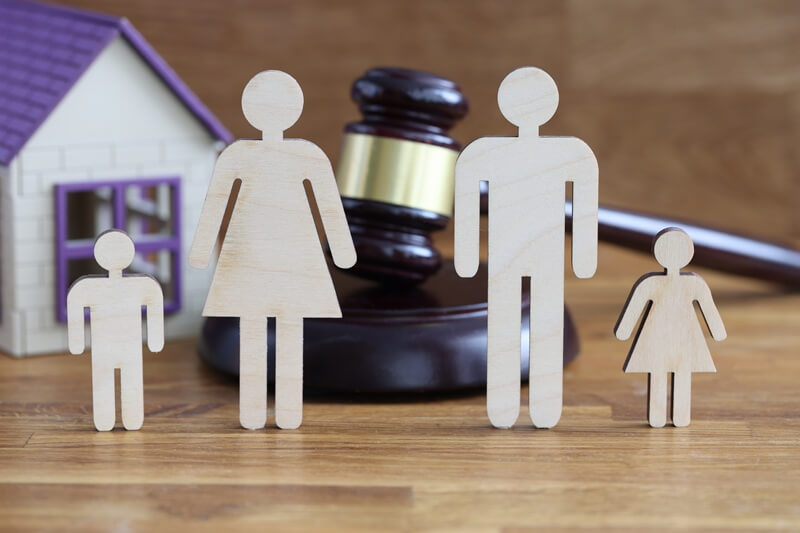Who Pays For The Medical Bills After An Injury?
Who Pays For The Medical Bills After An Injury?
Accidents can instantly disrupt lives, leaving wounds, stress, and financial uncertainty. Beyond the pain and recovery, the medical bills often pile up, creating a financial hurdle for the injured party. These costs can add up quickly, whether it’s an ambulance ride, emergency surgery, or long-term therapy.
When injuries result from another’s negligence, you can demand reparation for damages. This article explains managing medical bills after an accident while pursuing fair compensation. It explores coverage options, outlines essential steps, and provides strategies to secure financial recovery and protect your rights.

What Are The Medical Bills After An Injury?
The costs of medical care after an injury often catch people off guard, extending far beyond the initial treatment. From emergency services to long-term rehabilitation, each stage of care brings additional expenses. Here are some costs individuals face after an injury:
- Emergency Care: The first step after is often an ambulance ride to the hospital or an emergency room visit. While lifesaving, a single ER visit can cost thousands of dollars, especially if diagnostic tests, X-rays, or other procedures are required.
- Hospital Stays and Surgeries: Hospital stays and surgeries for severe injuries, such as orthopedic repairs or reconstructive procedures, can be incredibly costly. A single night in the hospital often costs thousands of dollars, with each additional day adding substantially to the expense.
- Rehabilitation and Therapy: There are cases where physical or occupational therapy is necessary to regain mobility, strength, and function. These sessions can last months or even longer, with costs increasing quickly, especially for vital treatments.
- Ongoing Prescriptions and Follow-Ups: Injuries often necessitate ongoing medications for pain management, infections, or chronic conditions stemming from the accident. Additionally, follow-up visits, imaging tests, and further procedures can significantly increase medical expenses.
Medical expenses after an injury quickly add up, spanning from emergency care to long-term treatments. The responsible party should cover these costs, not the affected individual. Identifying who owes payment and exploring coverage options brings clarity and financial relief.
Who Takes Care Of The Costs After Accidents?
In personal injury cases, the primary goal is to ensure that the at-fault party pays for the damages they caused. However, securing compensation takes time, leaving the affected individuals to manage their bills. Fortunately, several other coverage options can help fill the financial gap while awaiting a settlement or court decision.
Health Insurance
Health insurance often steps in first to manage medical expenses after an injury. Policies typically cover various costs, including hospital stays, medications, and rehabilitation, providing an essential safety net during recovery. This initial coverage ensures treatment continues while determining liability.
Insurers seek reimbursement for their payouts once the at-fault party’s responsibility is confirmed. This process, known as subrogation, allows insurance providers to recover costs through the final settlement or judgment. As a result, the financial burden shifts to the party responsible for the injury.
Auto Insurance
In vehicle-related accidents, auto insurance is critical for covering medical expenses. Medical Payments Coverage (MedPay), a common feature in many Virginia auto policies, allows individuals to pay immediate bills. This coverage helps with costs like ambulance rides, emergency treatments, and other urgent medical needs after the accident.
Although MedPay offers limited coverage and may not address all expenses, it provides a temporary solution while determining liability. Once the injured party establishes the at-fault driver’s responsibility, the responsible driver’s insurer pays the remaining costs through the claim settlement. This approach ensures timely access to care without waiting for drawn-out legal resolutions.
Workers’ Compensation
When workplace injuries happen, workers’ compensation benefits offer a clear path to covering medical expenses. This system allows injured employees to access treatment without proving fault, ensuring available care. It supports costs like doctor visits, rehabilitation, and other necessary medical services after the injury.
Although workers’ compensation pays for medical treatment and related expenses, it limits the ability to pursue additional claims. Employees may find it challenging to seek further compensation, even when employer negligence plays a role. Weighing these trade-offs helps injured workers make informed decisions about their next steps.
Uninsured Or Underinsured Motorist Coverage
When the at-fault party has inadequate insurance or none at all, uninsured or underinsured motorist coverage steps in to cover expenses. It can help the injured party with medical bills, lost wages, and other damages. It protects against financial risks such as hit-and-runs or accidents involving underinsured drivers.
Uninsured or underinsured motorist coverage addresses gaps left by the responsible party’s insurance. These policies pay for costs that would otherwise go uncovered, allowing injured individuals to manage their expenses without additional financial strain.
Third-Party Liability Claims
Third-party liability claims hold the at-fault party accountable for damages caused by their negligence. These typically cover medical expenses and lost wages, helping to address the financial impact of the injury. It ensures the injured party receives compensation for both current and future medical needs related to the accident.
The at-fault party pays through a settlement or court-ordered judgment when liability is proven. This shifts the financial burden of medical bills and other losses onto the responsible party, relieving the injured individual. Third-party liability claims ensure the negligent party takes financial responsibility for their actions.
Knowing the potential sources of coverage for medical bills is just one part of the process. Securing that compensation requires careful steps and attention to detail. Insurance companies, legal deadlines, and documentation significantly determine whether you receive the financial support you deserve.
What Steps Can Help Secure Fair Compensation?
Obtaining compensation for medical bills and other damages after an injury doesn’t happen automatically. It requires strategic action and meticulous preparation to build a strong case. A well-executed plan increases the chances of achieving full compensation for all expenses and damages. Here are steps to consider after an accident:
- Seek Medical Attention: Immediate medical care is critical for treatment and to support a compensation claim. Proper documentation of injuries helps establish their severity and connects them to the accident.
- Document the Scene and Expenses: Photos, witness accounts, and police reports create a clear record of the accident. Detailed financial records, including medical bills and receipts, strengthen claims and demonstrate the injury’s impact.
- Report the Incident Immediately: Notifying the appropriate authorities, whether the police for a car accident or a supervisor for a workplace injury, creates an official record. This documentation serves as critical evidence and strengthens the credibility of a compensation claim.
- File Claims Properly: Submitting claims promptly with accurate and complete information avoids delays. Meeting deadlines and including all necessary evidence ensures a smoother process and strengthens the case.
- Have Legal Representation: Attorneys help secure fair compensation by handling negotiations, gathering evidence, and uncovering additional benefits. They reduce the burden on injured individuals, allowing them to focus on recovery.
Taking the proper steps to secure fair compensation requires careful attention to detail and a clear understanding of the process. However, navigating insurance claims and legal procedures can be efficient with proper guidance. This is where having legal support can make a significant difference in achieving a favorable outcome.
Why Seek Legal Help With Personal Injury Cases?
Pursuing compensation after an injury can feel like an uphill battle. Dealing with insurance companies, legal forms, and strict deadlines is difficult, especially while recovering. Many struggle to gather the proper evidence or respond to lowball settlement offers while trying to heal.
Having legal guidance can make the process more manageable and less stressful. Attorneys step in to investigate the claim, collect evidence, and handle tough negotiations with insurers. They identify all potential avenues for compensation and address every detail to strengthen the claim.
Personal injury attorneys also take on the heavy lifting of paperwork and communication, freeing up time and energy for recovery. They focus on protecting rights and advocating for a fair settlement while their clients concentrate on getting better. Injured individuals can feel supported and confident that their case is in good hands with someone in their corner.
What Can The Irving Law Firm Do To Ease Your Recovery?
 At The Irving Law Firm, we know how difficult life is after an injury. The pain, medical bills, and uncertainty can leave a lasting impact on your life. Our team is here to lighten that load by guiding you through the legal process and working to secure a fair compensation.
At The Irving Law Firm, we know how difficult life is after an injury. The pain, medical bills, and uncertainty can leave a lasting impact on your life. Our team is here to lighten that load by guiding you through the legal process and working to secure a fair compensation.
We take the time to listen and understand your unique situation. Every case is different, so we build strategies that fit your needs. Our team gathers evidence, communicates with insurance companies, and manages every detail. We focus on protecting your interests and preventing anyone from taking advantage of you during this challenging time.
Throughout the process, we make sure you stay informed and supported. We explain every step clearly, answer your questions and be available when you need us. Whether negotiating with insurers or preparing for court, we work tirelessly to achieve a favorable outcome for your recovery and peace of mind.
Summary
Recovering from an injury brings significant financial challenges, with medical expenses adding up quickly. Covering these costs requires using resources like health insurance and third-party liability claims. Taking proactive steps such as seeking medical care and keeping detailed records builds a strong foundation for fair compensation.
Managing the legal process and dealing with insurance companies requires focus and effort, which can feel confusing during recovery. Experienced legal support simplifies the process and ensures injured individuals receive the compensation they deserve. The Irving Law Firm can help you regain stability and confidently move forward.




